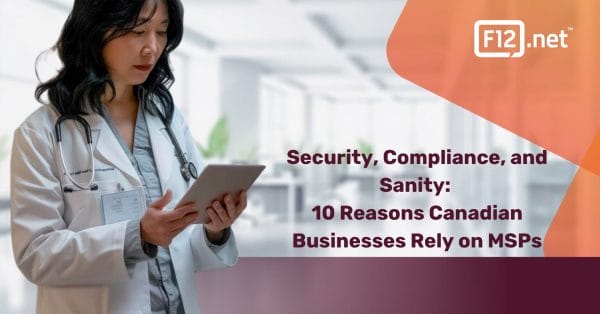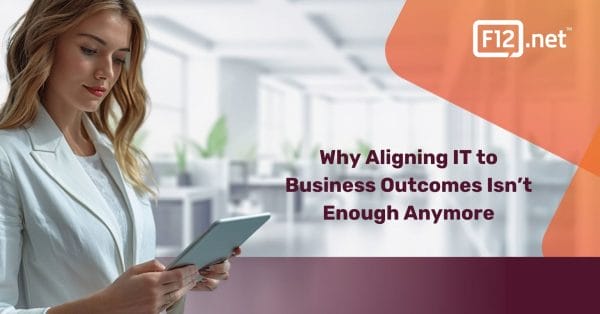At F12.net, we’re often talking about cybersecurity, IT solutions, and the best tech for your business to promote growth, dependability, and efficiency. To change things up, our CMO Devon Gillard brought in the man with the finance plan: our CFO, Anin Basu. The two sit down in this latest webcast to chat about the economics of Hardware-as-a-Service (HaaS).
The concept of hardware as a service product is sometimes a novel idea to companies. Anin breaks down why HaaS is not only popular business model, but also an economically advantageous one.
Scroll down to the bottom of the page to watch the entire webcast.
Insights
Devon shares the story of a company in the early 2000s that had adopted the Hardware-as-a-Service model at [1:13] and the company sounds pretty familiar…
Anin talks about how “finance folks” such as himself (he is our CFO!) are always looking for stability, in the market and in operations, at [2:48]. He explains why HaaS is a product that provides some of that stability by removing a variable.
While most HaaS models have a fixed asset lease, the service part of the agreement is often variable. At [5:17], Anin explains what sets F12’s HaaS program apart: a fixed cash flow on both sides, the hardware and the service.
Devon points out that most of us don’t have a commerce degree and asks Anin to explain the financial pros and cons to leasing (versus owning) the equipment at [8:20].
With inflation top of mind for so many people, Anin breaks down a fundamental economic principle at [12:50] that’s particularly relevant.
“Capital available to a business is always a finite number; it’s never limitless,” Anin says at [14:59]. He goes on to explain what to consider when allocating capital, and how that translates to money used to buy assets to grow a business as opposed to a rental model.
Devon brings up the fact that a business will only get so much credit, just like individual people. (Sorry, Devon, no Ferrari for you.) At [17:50], Anin explains the impact on credit capacity that the two hardware models can have.
“Covenant” is an unfamiliar term to some, particularly in a business context. Anin breaks down its importance at [21:14]. And true to form, Devon puts an Alberta twist on the definition at [21:41].
Anin and Devon highlight the considerable advantages and economic benefits of a fixed-price HaaS agreement at [23:38].
Devon points out why end-of-life costs for hardware must be considered at [26:12]. Programs like the one at F12 include the labour costs, which, Devon mentions, can cost a pretty penny.
Watch the full webcast right here!
F12 is a leader in IT management services across Canada. We’ve been creating technology solutions for companies big and small for more than 20 years.
Whether it’s deciphering the economics of Hardware-as-a-Service, using the Software-as-a-Service model, implementing cybersecurity, or learning about any other IT product, we’re here for you. How can we help your business grow while remaining cyber secure?



